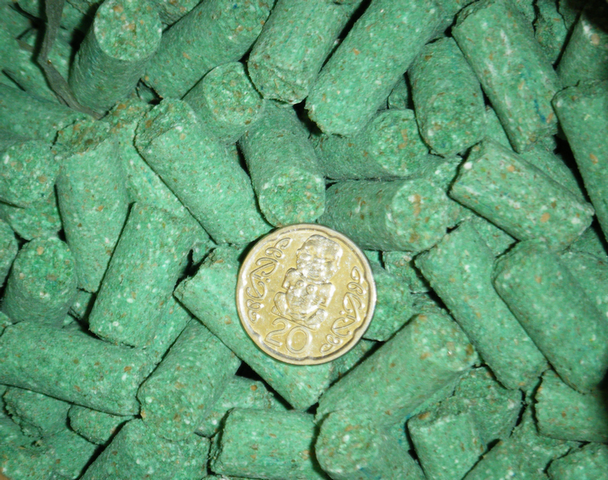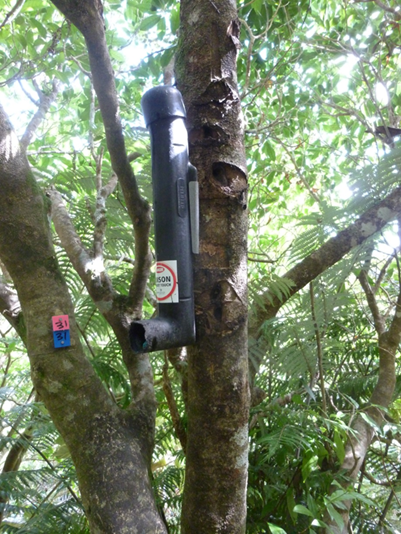Diphacinone is used to control rats. It has been used in New Zealand since the 1950’s, and is often marketed under the brand name Pestoff 50D or RatAbate.
We may also use Double Tap, a bait that has two active ingredients; Cholecalciferol and Diphacinone.
Diphacinone bait is dyed green in colour, and reduces the clotting power of blood. It is a ‘first generation’ anticoagulant poison, meaning the animal must feed on it multiple times before a lethal dose is reached.
Diphacinone is less effective on mice, which often have to eat more than 2x their own body weight to get a lethal dose.
Safe usage
 Diphacinone, which is dyed green, must only be used in bait stations. This toxin poses a low risk when used correctly, but safety precautions must be taken, especially around children and animals. To ensure diphacinone is being used safely:
Diphacinone, which is dyed green, must only be used in bait stations. This toxin poses a low risk when used correctly, but safety precautions must be taken, especially around children and animals. To ensure diphacinone is being used safely:
- The bait stations must be located out of reach of children, pets and stock
- Warning signs must be erected at all main access points to public areas where diphacinone bait stations are placed
- Store bait in a safe place, away from foodstuffs, children and pets
- Avoid contact with skin
- Wear overalls and waterproof gloves when handling bait
- Avoid contamination of any water supply with baits or empty containers
- Do not eat, drink or smoke while using
- Wash hands and exposed skin after applying bait
Environmental effects
Diphacinone is most unlikely to be found in water because bait is placed in bait stations and kept clear of streams and waterways.
Get in touch
- Phone:
- 0800496734
- Email:
- info@gw.govt.nz

 Although treatment may be possible, prevention is the only sure way of protecting animals and pets from poisoning.
Although treatment may be possible, prevention is the only sure way of protecting animals and pets from poisoning.